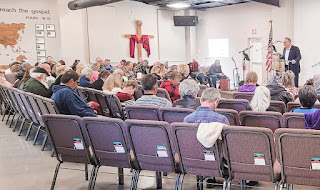 |
| Light House Christian Centre |
A recent report reveals that American Christian groups and individuals are facing systematic targeting by financial institutions and the media.
One such group, the National Committee for Religious Freedom, a faith-based non-profit organization dedicated to defending religious freedom, had its account terminated by JPMorgan Chase just three weeks after establishing a relationship with the bank. Additionally, the bank demanded that the organization provide a list of its donors. Family Council, a conservative group focused on preserving traditional family values, had its credit card processor account terminated by Chase, while WePay, another company owned by Chase, refused service to Defense of Liberty, a political action committee.
Simultaneously, a media campaign seems to be portraying conservative Christians in a negative light. Christian characters in movies and television shows are frequently depicted unfavorably. This portrayal has contributed to a surge in violence against churches, with The Family Research Council reporting over 400 "acts of hostility" against churches in the past five years alone.
Despite these distressing developments, both the government and corporate media have largely remained silent or even contributed to the persecution of Christian groups. The corporate media has failed to address the issue adequately, while the federal government, as revealed by internal documents released by the House Judiciary Committee, has sought to develop sources within certain churches, specifically targeting "mainline Catholic parishes," in its efforts to combat domestic terrorism.
The situation has reached such an alarming level that California has established a hotline called "CA vs Hate" for residents to report "hate acts." Remarkably, these acts are reportable even if they do not involve violence. This initiative has raised concerns about the potential unfair targeting and persecution of Christians, as the definition of a "hate act" remains ambiguous.
The targeted actions against Christian groups and individuals by financial institutions and the media are deeply troubling, sparking apprehension about the erosion of religious freedom in the United States. The critical question remains whether appropriate measures will be taken to address this alarming trend or if it will continue to escalate.







0 Comments